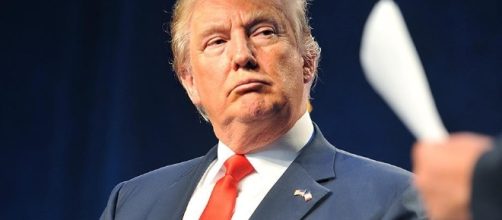Donald Trump's latest Executive Order has perhaps been the most controversial yet. Described by many as a Muslim Ban, the decision to halt immigration from seven Muslim-majority nations has been met with worldwide dismay and criticism, as well as numerous protests at home. The Order also suspends the whole US refugee admissions system for 120 days, despite it already being one of the most rigorous processes in existence. On top of this, the Syrian refugee program, perhaps the most vital in the current climate, was suspended indefinitely.
World leaders outraged
Leaders across the world have responded with both surprise and anger, dismayed at the thinking behind the decision as well as the haste in which it has been implemented. One of the first to speak out was Justin Trudeau, the Canadian Prime Minister, who tweeted that Canada would welcome any refugees fleeing terror, war, or persecution, regardless of their faith. Whilst stopping short of criticizing Trump himself, his message was clear and has been met with worldwide support.
The response in Europe has been similar. According to France24, French President Francois Hollande called the decisions "a dead-end response," and urged Europe to respond firmly to the American President should he continue to promote the break-up of the EU or refuse to admit any more refugees.
He stressed that Europe must continue to hold firm to its responsibilities as a space for liberty and democracy alongside resisting any populist movements that may arise.
Angela Merkel was similar in her criticism (according to the Independent), announcing that it is "not justified to put people from a specific background or faith under general suspicion" in the name of combatting terrorism. Germany accepted around 300,000 Syrian refugees in 2016, compared to just 12,486 by the US. Praised for her humanitarian response to the Syrian crisis, a spokesperson for the German leader insisted Ms. Merkel was convinced that any fight against terrorism didn't justify putting people of certain faiths or origins under general suspicion.
Reaction in the United Kingdom
The response in the UK has been rather confusing. Having just returned from her visit to the US, British Prime Minster Theresa May at first refused to condemn the Executive Order. Following a public outcry, her subsequent response has still been muted and may become a defining moment of her tenure. The British public, on the other hand, responded with anger. A petition to downgrade President Trump's expected State Visit to the UK later in the year reached over 1.2 million signatures as of Monday afternoon, triggering a debate in Parliament on the issue in the coming weeks. A long time ally of the United States, it is expected that there will be large-scale protests across the UK during Mr.
Trump's visit.
It remains to be seen whether the Executive Order will continue to be enforced. Since its signing, lawmakers across the US have been challenging the decision, with federal judges in both New York and Virginia ordering stays on the deportations for anybody with a valid visa. Whilst this only affects a small portion of the total number of individuals affected, it is a blow to the Trump regime, with more battles in the courts expected.
Aftermath of decision
The decision has caused chaos both at home and abroad, and law enforcement officers at ports and borders have been confused as to their roles, combined with refugees confused as to where they now stand in their attempts to reach safety.
The seven nations named on the banned list have also begun to take reciprocal actions. On Sunday Iran announced it would no longer be issuing new visas to US citizens, and on Monday stated that it would stop using the US Dollar in official statements.
The coming days and weeks will provide a clearer picture as to how serious the consequences of the Trump administration's actions will be. With a greater number of nations likely to speak out against the ban, the US may be left isolated.

